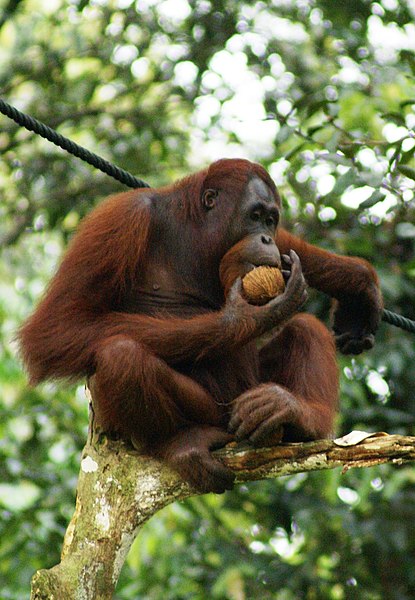
From Jason G. Goldman at National Geographic:
On November 20, 2013, the Sumatran Orangutan Conservation Programme got a call about an injured orangutan found in the mountainous region of Tapanuli.
The orangatang had been fatally injured by humans.
But Raya lives on as the representative member of a new orangutan species, Pongo tapanuliensis, or the Tapanuli orangutan—the rarest great ape species on the planet.
At 800 members.
Eventually, the scientists teamed up. Krützen’s group sequenced the entire genome of 37 wild orangutans throughout Sumatra and Borneo…
The results, published November 2 in the journal Current Biology, show that Bornean orangutans, Sumatran orangutans, and the new species from Batang Toru comprise three distinct evolutionary lineages. Incredibly, the oldest lineage belongs to the newest species. More.
But is there any internationally recognized specific measure for genomic difference that requires the group to be formally recognized as a different species?
“Many overlooked species, like Pongo tapanuliensis, are endangered,” Helgen adds. “It is urgent and crucial to accurately document them and give them scientific names, so they can be recognized as distinctive, studied in greater depth, and protected from extinction.”
Hmmm. “Scientific names” is not the same as generally accepted scientific measurement. If we give the newly discovered orangutans a “scientific name” just to get them protection from poachers, it’s a valid objective in principle. But the speciation mess will likely end up hindering conservation more than helping it.
See also: A common species of beetle turns out to be two species
“More than 10 percent of all bird species have been known to hybridize at least once”
Genomics is upsetting the classification of bird species Why is it taking so long to organize claims about speciation in manner worthy of science?
Nineteen new “species” of gecko? Or 19 new fundraising opportunities…?
and
Nothing says “Darwin snob” like indifference to the mess that the entire concept of speciation is in